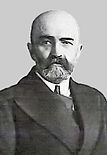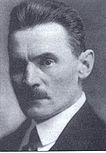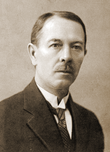Polish legislative election, 1930
|
|
|||||||||||||||||||||||||||||||||||||||||||||||||||||||||||||||||||||||||||||||||||||||||||||||||||||||||||||||||||||||||||||||||||||||||||||
|---|---|---|---|---|---|---|---|---|---|---|---|---|---|---|---|---|---|---|---|---|---|---|---|---|---|---|---|---|---|---|---|---|---|---|---|---|---|---|---|---|---|---|---|---|---|---|---|---|---|---|---|---|---|---|---|---|---|---|---|---|---|---|---|---|---|---|---|---|---|---|---|---|---|---|---|---|---|---|---|---|---|---|---|---|---|---|---|---|---|---|---|---|---|---|---|---|---|---|---|---|---|---|---|---|---|---|---|---|---|---|---|---|---|---|---|---|---|---|---|---|---|---|---|---|---|---|---|---|---|---|---|---|---|---|---|---|---|---|---|---|---|
|
|||||||||||||||||||||||||||||||||||||||||||||||||||||||||||||||||||||||||||||||||||||||||||||||||||||||||||||||||||||||||||||||||||||||||||||
|
All 444 seats to the Sejm |
|||||||||||||||||||||||||||||||||||||||||||||||||||||||||||||||||||||||||||||||||||||||||||||||||||||||||||||||||||||||||||||||||||||||||||||
|
|||||||||||||||||||||||||||||||||||||||||||||||||||||||||||||||||||||||||||||||||||||||||||||||||||||||||||||||||||||||||||||||||||||||||||||
Parliamentary elections were held in Poland on 16 November 1930, with Senate elections held a week later on 23 November. In what became known as the Brest elections (Polish: Wybory brzeskie), the pro-Sanation Nonpartisan Bloc for Cooperation with the Government took 47% of the vote and 249 of the 444 seats in Sejm and 77 of the 111 seats in the Senate. The elections are known as the least free elections in the Second Polish Republic due to the Brest trial controversy.
The elections were rigged by the pro-Sanacja elements in the Polish government under the control of Józef Piłsudski (although Piłsudski left most of the details of the internal politics to others).
The elections were supposed to take place in May, but the government invalidated the May results by disbanding the parliament in August and with increasing pressure on the opposition started a new campaign, the new elections being scheduled to November. Using the anti-government demonstrations as a pretext, 20 members of the oppositions, including most of the leaders of Centrolew alliance (from the Polish Socialist Party, Polish People's Party "Piast" and Polish People's Party "Wyzwolenie") were arrested in September without a warrant, only on the order of the minister of internal security, Felicjan Sławoj Składkowski accusing them of plotting an anti-government coup. The opposition members (who included the former prime minister Wincenty Witos, and the Silesian national hero, Wojciech Korfanty) were imprisoned in the Brest Fortress, where their trial took place (thus the popular name for the election: the 'Brest election'). A number of less known activists were arrested throughout the country. They were released after the end of the election in the same month. The Brest trial ended in January 1932, with 10 accused receiving sentences up to three years of imprisonment. Some of them decided to emigrate instead.
...
Wikipedia








